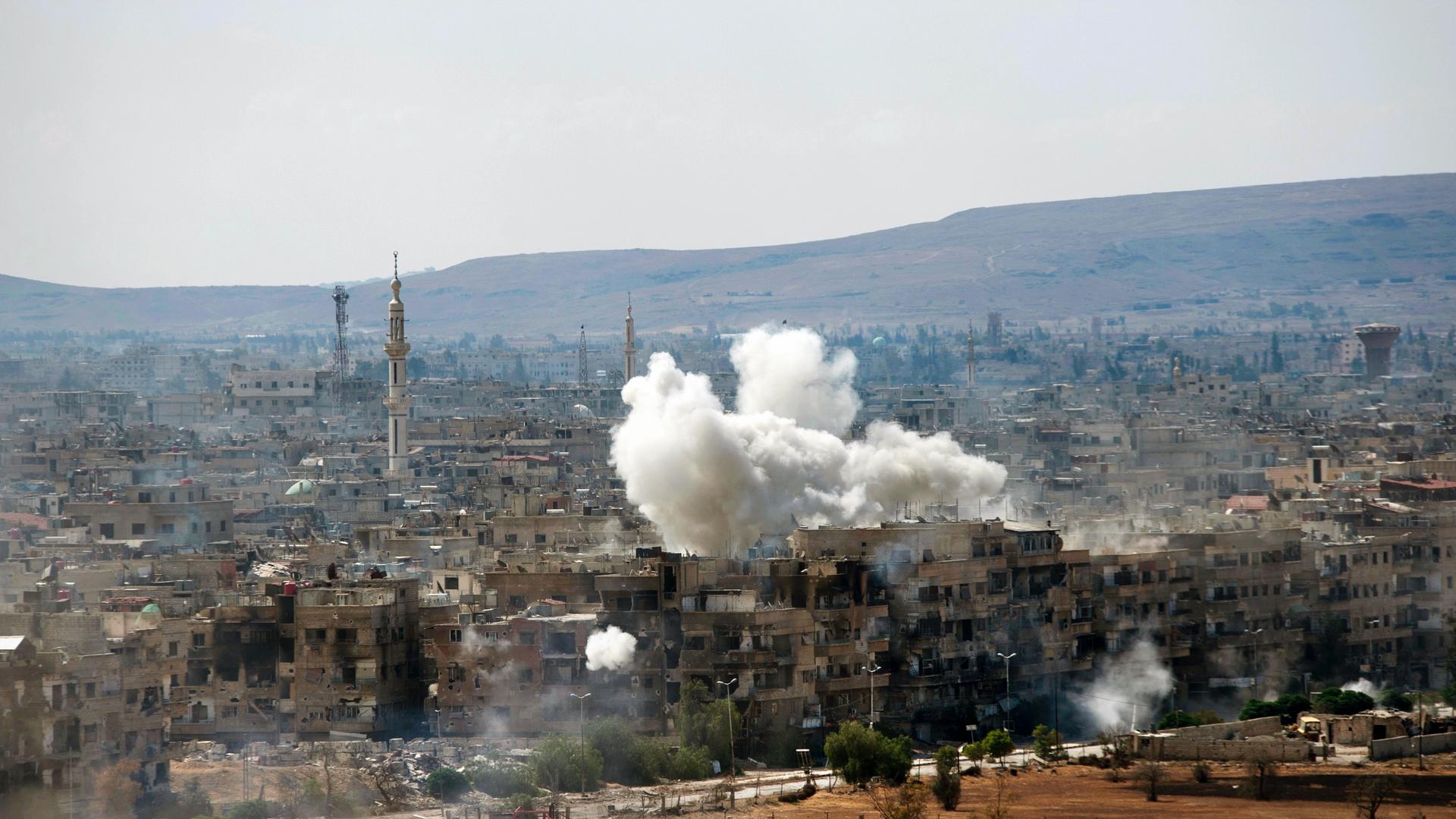Growing up in Syria, Mohammad al-Abdallah loved watching Jackie Chan movies. They were dubbed in Arabic, and Chan’s acrobatic style of martial arts just blew him away.
“Like, even in school, sometimes people tried to copy him. So, he was a legend to our generation,” Abdallah said.
Abdallah comes from a family of activists in Syria. He was jailed and tortured by the government, he said, and had to flee to the US. He now directs the Syria Justice and Accountability Center, a human rights organization in Washington.
Syria is home for Abdallah, but one that he can’t return to. At least not now. So, this past week, when he found out that Chan was producing a film in his home country, his ears perked up; but after he learned the details, he was disappointed.
Chan’s production team began filming “Home Operation,” in Syria this past week. The location is a city called Al-Hajar al-Aswad, outside of the capital, Damascus. The area was a stronghold for the opposition during the war. The news has outraged some Syrians like Abdallah, who say their destroyed homes are not props for foreign film productions.
“These used to be homes of people and schools of children and hospitals for elders and it all does not exist now, and the government of Syria is just renting it to Jackie Chan and his production company to make a movie.”
In 2015, ISIS took over the city, and three years later, Syrian government forces drove the militants out.
Years of fighting leveled Al-Hajar al-Aswad. Today, what’s left is mostly just pulverized buildings and destroyed roads.
“As far as we know, there might still be bodies under the rubble,” said Alia Malek, a Syrian American writer and director of the international reporting program at City University of New York’s Newmark Graduate School of Journalism.
Malek has written about high-level Syrian security officers taken to court in Germany for their crimes. She said that Al-Hajar-al-Aswad is the site of potential war crimes.
“So, these sites should be preserved, in theory, if we are a world that cares about accountability and justice,” she said.
“Home Operation” is based on a true story. In 2015, the Chinese navy carried out a rescue operation in Yemen to evacuate a group of Chinese citizens and other people. They were trapped there because of the war.
The operation was touted as a huge success in China. Now, the Chinese government wants to chronicle the event in this movie, which is also getting support from the United Arab Emirates.
The movie is being shot in Syria instead of Yemen because of the ongoing war there. There are no reports about Chan himself being on the ground in Syria.
Malek pointed out that using a city in Syria that hasn’t recovered from war as a backdrop for a movie normalizes brutality and atrocities.
“It’s becoming increasingly more normal — the idea that authoritarian or totalitarian regimes are able to act with impunity,” she said. “The more normalized Arab or Syrian death is, the more we are all, as a human race, diminished by that.”
In recent years, as the fighting slowed down, foreign filmmakers, YouTube celebrities and influencers started going to Syria on government-sponsored trips. They claim to show the “real Syria” where things are perfectly normal and people are living side by side in peace.
“The idea that you can go and get a great TikTok video or Instagram video or YouTube video from Syria is part and parcel of that normalization,” Malek said.
Last week, Syrian President Bashar al-Assad, himself, strolled through the ruins of Aleppo, another city destroyed in the war. Photos posted online showed him and his family in casual summer linen, looking as if they are on a Mediterranean vacation.
“They walk around like, ‘Oh, where did this destruction come from?’ As if they didn’t have a hand in it,” Malek said.
For Syrian filmmaker Waad al-Kateab, influencers and artists flocking to Syria for content is just painful.
“It’s really difficult just to think about it,” she said.
Kateab made a documentary about the uprisings in Syria called “For Sama,” that was nominated for an Oscar in 2020. She fled her home in Aleppo and now lives in the UK.
She said that she’s also troubled about “Home Operation” being shot in Syria.
“We’re worried to see our own neighborhoods, where we grew up, our own houses, which were destroyed by the regime, [become] like a part of a film set,” she said.
Chan’s publicist didn’t respond to an interview request for this story.
